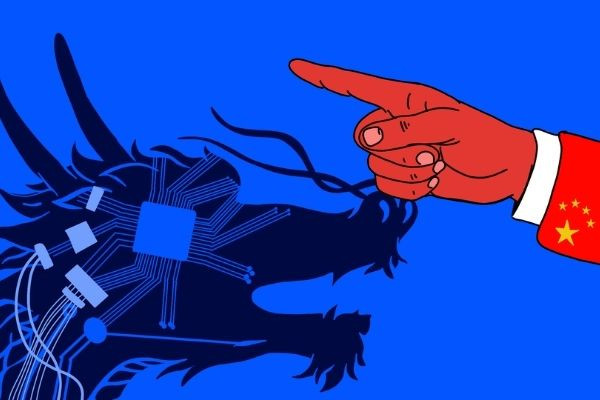China’s Big Tech is ‘fazed’ by the pandemic and the government’s suppression
Engineers and technology investors in Shenzhen worry that the days of “galloping” growth of China’s technology industry are a thing of the past.
The most obvious proof of this concern is the fact that the shares of the three Chinese Internet giants have dropped significantly within a year. In which, shares of Tencent fell 41%, Alibaba fell 59% and Baidu fell 37%.

Faced with the complex challenge of a crackdown, domestic Covid-19 lockdowns and trade sanctions from abroad, many businessmen in the industry seem to be “more docile” to the regulation from China. government of this country.
Tech executives who stopped posting on social media and hidden their previous comments include Zhang Yiming, founder of ByteDance, which owns TikTok; Jean Liu, Chairman of China’s ride-hailing giant Didi Chuxing, and Wang Xing, founder of popular food delivery app Meituan.
Even the founder of Alibaba, Jack Ma, is so quiet that there are rumors that he may have been detained.
“The positives that I see now are Vietnam, Indonesia, Singapore. China’s dynamism seems to have shifted here,” said Duncan Clark, founder of Beijing-based consulting firm BDA, China.
About a decade ago, China’s internet sector was economically strong, once jostled by foreign investors for a piece of the country’s mobile boom.
Startups burn through billions of dollars, as Chinese consumers prefer convenient and cheap rides, food delivery and other apps heavily subsidized by venture capital.
Recently, a series of news of staff reductions at several major Chinese Internet companies has become a trend on social networks and the focus of local media reports.
The discussion was so widespread that the Cyberspace Administration of China unexpectedly publicly commented on companies’ recruitment trends. They met Tencent, Alibaba, Baidu and others and determined that, overall, businesses are still hiring more people than have been laid off since last summer.
Tencent Chairman Martin Lau said the company would streamline its non-core businesses and said the industry’s growth had become “faint and unhealthy”. Over the years, industry insiders have put too much emphasis on marketing, expansion, short-term growth, and company benefits, ignoring the most important elements of sustainable growth.
In Shenzhen, the local government will pay 10 per cent of companies’ electricity bills this month as a way to relieve the “pain”.
In a survey of 97 companies conducted by the Shenzhen Venture Capital Association in March, 93% of respondents said they were suffering the economic effects of the pandemic. Along with that, some factories reported losses of hundreds of thousands of dollars due to being forced to stop production.
The moment to worry investors began in November 2020, when Alibaba’s mobile payments arm Ant Group saw its public listing abruptly canceled by the regulator.
The event shocked many executives when Beijing chose to forgo a blockbuster IPO that was supposed to be the biggest in history. That may be the result of the online financial sector’s over-expansion without regulation.
Besides, the fractured relationship with the West also weighed on the technology industry. US sanctions continue to block Huawei’s research and development activities, while the tense political environment hinders sales of many Chinese companies in international markets.
At the same time, the Covid-19 pandemic has added to the challenge as the production cycle of many factories was suspended for weeks across the country and workers were forced to stay indoors.
Richard Yu, Huawei’s head of consumer and automotive business, warned in a social media post last month that there would be potentially major effects along the supply chain if manufacturing in China were to be disrupted. Shanghai remains suspended until the end of May.
At the end of April, the Shenzhen Bureau of Statistics reported that retail sales of consumer goods fell 1.6% in the city, while import and export volumes fell 2.8%.
Some observers, including Joerg Wuttke, President of the European Union Chamber of Commerce in China, say Beijing appears to be easing repressive regulations on the tech industry because of its economic challenges. country.
Thai Hoang (According to TWP)
at Blogtuan.info – Source: vietnamnet.vn – Read the original article here



